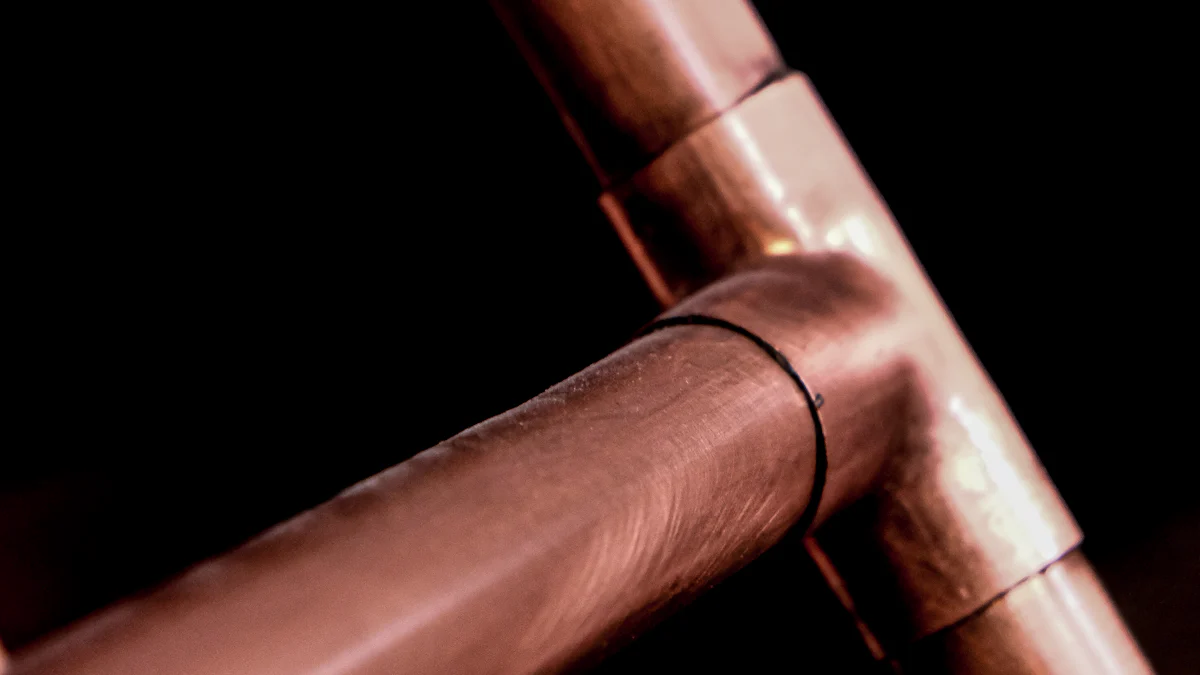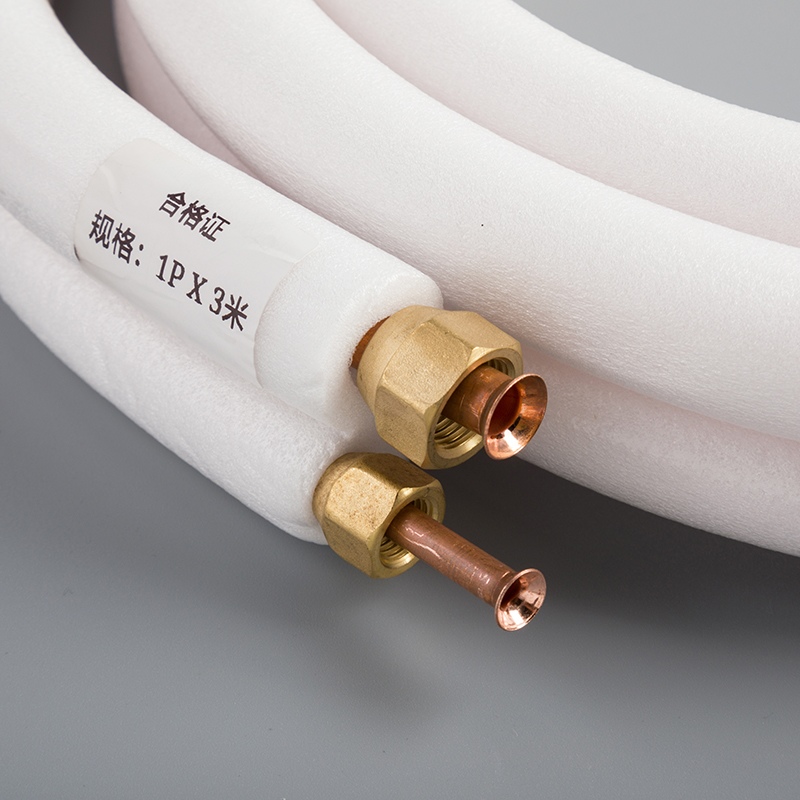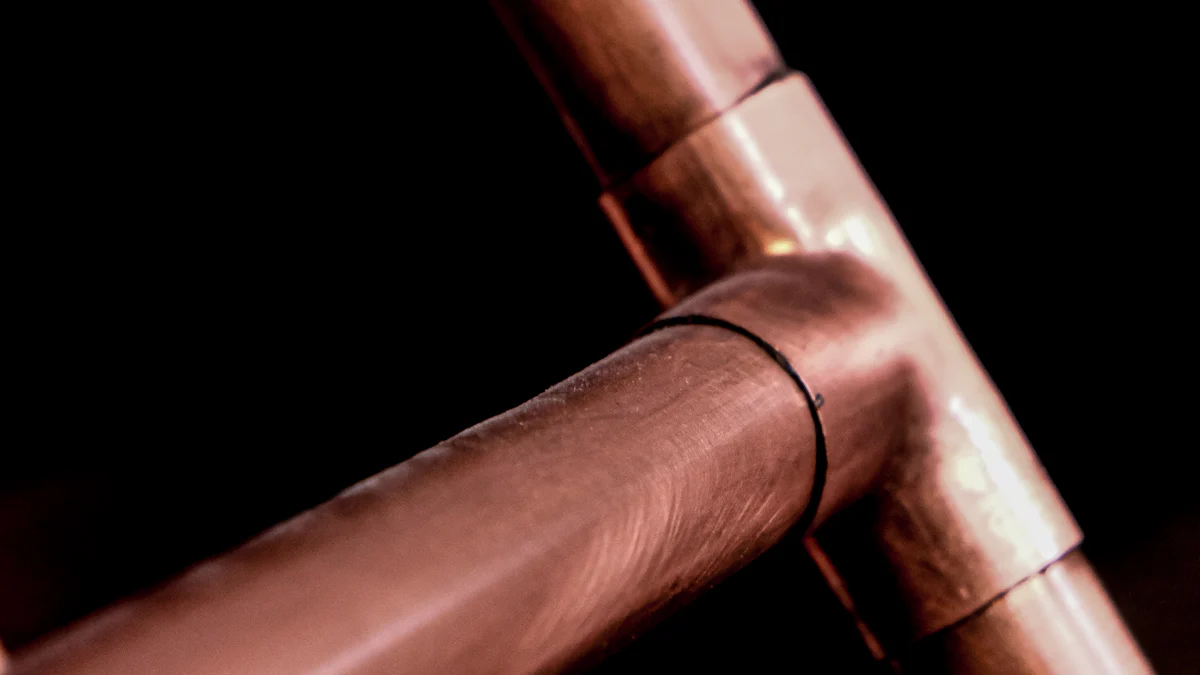How Long Does Copper Plumbing Last?

Understanding the copper plumbing lifespan is crucial for homeowners. Various factors influence how long copper piping lasts, from water quality to installation methods. This blog aims to shed light on these aspects and provide insights into maximizing the longevity of your plumbing system, including how long copper pipe lasts underground.
Factors Affecting Copper Plumbing Lifespan

Water Quality
According to Plumbing Experts at Warner Service, most experts predicted that copper pipes would continue to work well for up to 20 to 25 years. However, two factors were not considered: the quality of the copper pipes and the quality of the water. If your water contains many minerals (hard water), it can result in buildup in the pipes and lead to pinhole leaks as early as two years after installation. Water chemistry is crucial, and getting your water tested and installing a water conditioner might save you from replacing your plumbing system sooner than expected.
Hard Water Impact
Hard water can cause mineral buildup inside copper pipes.
This buildup may lead to pinhole leaks within just a few years of installation.
Soft Water Impact
Soft water is less likely to cause mineral deposits.
It generally has fewer negative effects on copper pipe longevity.
Installation Quality
The lifespan of copper plumbing is also influenced by the quality of its installation. Opting for professional installation ensures that all connections are secure and leak-free, potentially extending the life of your plumbing system significantly.
Professional Installation
Professional plumbers ensure secure connections.
Properly installed copper pipes are less prone to leaks over time.
DIY Installation
DIY installations may lead to loose connections.
Improperly installed pipes can result in premature failures.
Environmental factors play a role in how long copper piping lasts. Extreme temperatures and soil conditions can impact the integrity of copper pipes over time, affecting their overall lifespan.
Temperature Extremes
Fluctuating temperatures can stress copper pipes.
Extreme heat or cold may accelerate wear on the piping material.
Soil Conditions
Soil with high acidity levels can corrode copper pipes.
Proper insulation against soil contact can help preserve pipe integrity.
Types of Copper Pipes

Characteristics:
Type M copper pipes are known for their thinner walls compared to other types.
These pipes are commonly used in residential plumbing systems due to their cost-effectiveness.
Type M pipes have a shorter lifespan compared to thicker varieties.
Lifespan:
Type M copper pipes typically last around 50 years when installed correctly.
The thin walls make them more susceptible to damage, requiring careful handling during installation.
Despite their shorter lifespan, Type M pipes are a popular choice for water supply lines in homes.
Characteristics:
Type L copper pipes have medium thickness and are versatile for various applications.
These pipes are preferred by homeowners for their balance between durability and cost.
Type L pipes offer a reliable solution for both residential and commercial plumbing needs.
Lifespan:
Type L copper pipes can last between 50 and 100 years under proper conditions.
Their moderate thickness provides a good balance of strength and flexibility.
With regular maintenance, Type L pipes can serve as long-lasting components in your plumbing system.
Type K Copper Pipes
Characteristics:
Type K copper pipes are the thickest among the common types available.
These heavy-duty pipes are ideal for underground installations and high-pressure systems.
Type K pipes offer superior durability and resistance to external factors.
Lifespan:
Type K copper pipes have an impressive lifespan of over 100 years when properly installed.
Their robust build makes them suitable for challenging environments and demanding applications.
Investing in Type K pipes ensures a reliable plumbing infrastructure that can withstand the test of time.
Maintenance and Environmental Impact
Regular Inspections
Maintaining copper plumbing involves regular inspections to ensure the system's integrity. Identifying corrosion early on can prevent extensive damage and costly repairs down the line. Addressing leaks promptly is crucial to avoid water wastage and potential structural issues.
Proper Water Treatment
Implementing proper water treatment measures can significantly impact the longevity of copper pipes. Installing water softeners can help reduce mineral buildup, preserving the pipes' condition over time. This proactive approach not only benefits your plumbing system but also contributes to overall water conservation efforts.
Specific Regional Considerations
Considering specific regional factors is essential when assessing copper pipe lifespan. In regions like Arizona, where extreme temperatures and arid conditions prevail, copper pipes may be subjected to additional stress. Understanding these environmental influences allows homeowners to take preventive measures and prolong the life of their plumbing infrastructure.
Recapping the key points, experts initially estimated that copper pipes would last around 20 to 25 years. However, the actual lifespan depends on factors like water quality and pipe installation. Understanding these influences is crucial for homeowners to maximize the longevity of their plumbing systems. In conclusion, investing in proper water treatment and considering regional conditions can significantly impact how long copper piping lasts underground. Homeowners should prioritize regular inspections and professional installations to ensure the durability of their copper plumbing lifespan.
See Also
Exploring the Lifespan of Copper Pipes Buried Underground
Maximizing Efficiency: A Comprehensive Copper Pipe Maintenance Guide
Prolonging the Lifespan of Copper Pipe Coils: A Comprehensive Guide


